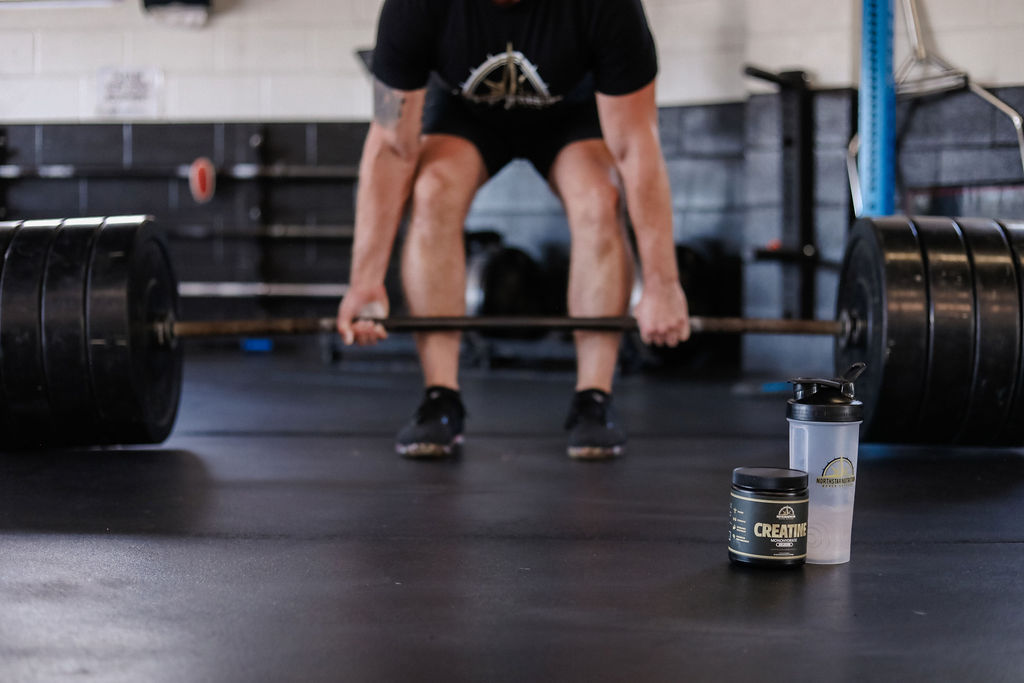
We are thrilled to announce that we’re preparing to open our first storefront, located in Cedar Park, Texas! The location will be adjacent to our partners at Stonehenge Weightlifting at 2000 Windy Terrace, Unit 15B, Cedar Park, Texas. Stay tuned for upcoming store hours.
To kick off this new chapter, on Saturday, June 14th, NorthStar and Stonehenge will be co-hosting “Barbells & Brews.” The day will start with a two-person team competition that’s a hybrid competition consisting of olympic weightlifting, powerlifting, and CrossFit elements. Afterward, our Open House will feature beer & coffee from Slackers Brewing Co., burgers from Shake Shack, huge giveaways, and more!
Here’s the schedule:
- 8:30 AM – Athlete weigh-in and warm-up time
- 9:30 AM – Snatch event
- 10:30 AM – Deadlift event
- 11:30 AM – Power clean event
- 12 PM – 2 PM: Open House
THE COMPETITION
Teams will be same-sex teams of 2 in either the Tier 1 or Tier 2 divisions. The main difference between Tier 1 and Tier 2 is the set weight that will used during Event 3 on the power cleans: Tier 1 weights will be 135 lbs (61.2 kg) for men and 95 lbs (43 kg) for women, and Tier 2 weights will be 95 lbs (43 kg) for men and 65 lbs (29.5 kg) for women.
Event Descriptions
Event 1: 15 minutes for each athlete to find a max weight snatch. Both athletes will use the same bar, and weights may be added or removed at any time. Athletes may perform as many attempts as desired within the 15 minutes. Any type of snatch is allowed (power, full, split). An athlete’s score will be determined by max weight successfully completed divided by the athlete’s bodyweight (taken at athlete check-in). The sum of both teammates’ scores will then be added together.
Event 2: 15 minutes for each athlete to find one max weight deadlift. Both athletes will use the same bar, and weights may be added or removed at any time. Athletes may perform as many attempts as desired within the 15 minutes. Sumo deadlifts are not allowed. A repetition is considered complete when the athlete’s knees and hips are locked out and shoulders are behind the bar. An athlete’s score will be determined by max weight successfully completed divided by the athlete’s bodyweight (taken at athlete check-in). The sum of both teammates’ scores will then be added together.
Event 3: Teams have 5 minutes to complete as many repetitions as possible of power cleans at a single weight on a single barbell (see division weights above). Athletes may trade off as many times as desired. A repetition is considered complete when the athlete’s knees and hips are locked out at the top of the repetition, with their elbows in front of the bar. Scoring for this event will be determined as follows: (total team repetitions completed) x (average of all individual scores of events 1 & 2).
Registration
The cost of registration is $100 per team. Please register using this Eventbrite link. Register by May 20th to secure an exclusive competition t-shirt designed by LRX Apparel.
Open House
Immediately following the competition will be our Open House from 12pm to 2pm, where you can expect:
- NorthStar product samples & exclusive BOGO sale
- Complimentary beer and coffee from Slackers Brewing
- Complimentary burgers from Shake Shack
- Free assessments from PT Liftology
- Giveaways including NorthStar products and gift cards from local partners
We are so excited to celebrate this next step with the community!















